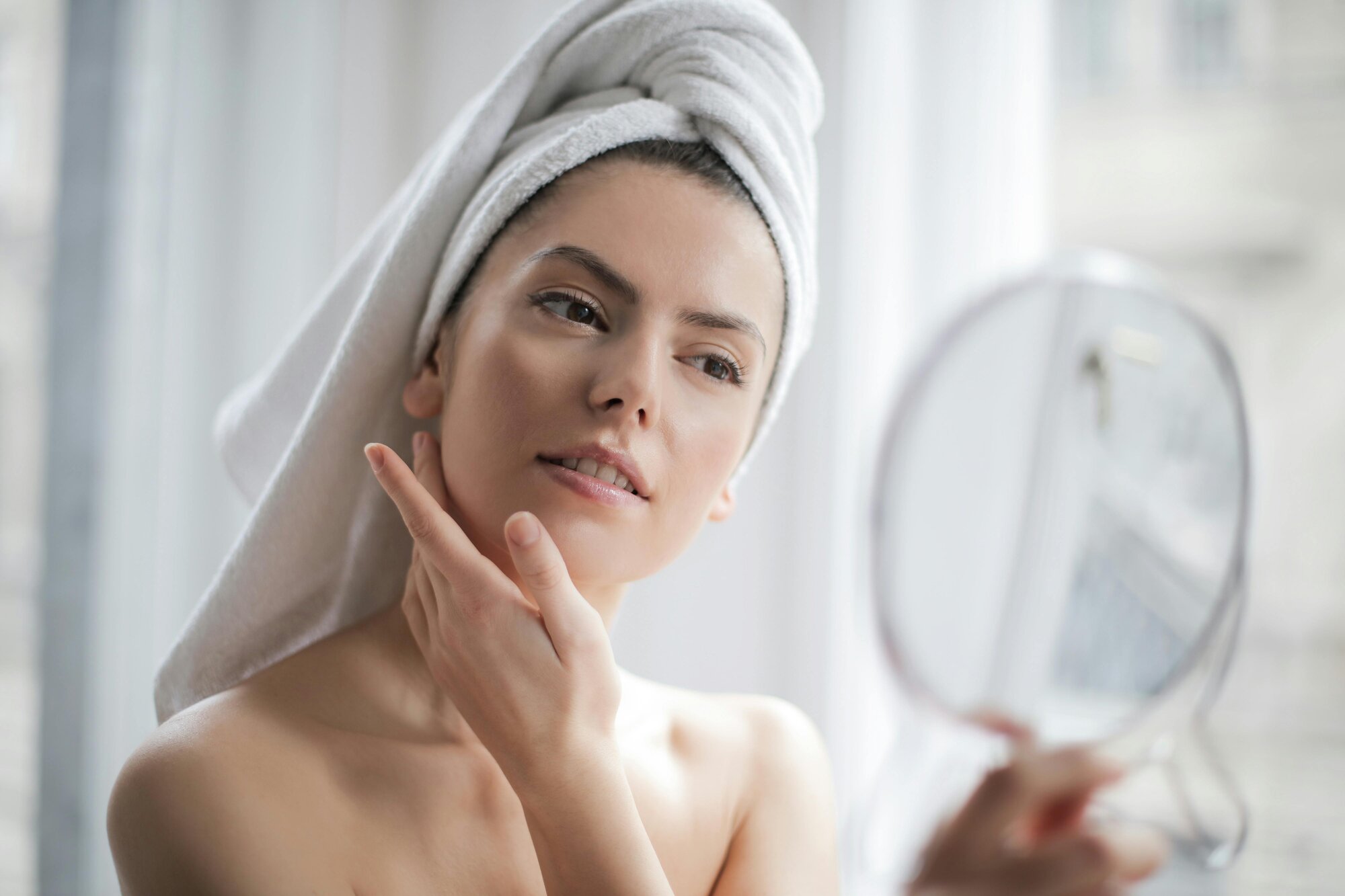
2025 Personal Care Trends
The Future of Beauty is Sustainable, Smart, and Science-Driven
February 5th, 2025
5 minutes
Personal Care
By Sierra Cotton
Download Free Personal Care GuideThe personal care industry is transforming, driven by consumer demand for sustainability, performance, and innovation. As we enter 2025, brands are rethinking formulations to align with evolving consumer expectations, integrating biotechnology, eco-conscious ingredients, and holistic beauty approaches.
At Lygos, we’re at the forefront of these shifts, providing sustainable solutions like Soltellus™ Polymer, our biodegradable, multifunctional polymer designed to elevate formulations in skincare, haircare, and beyond. Here’s what will shape personal care in 2025:
1. The Rise of “Skinification” in Haircare
The trend of treating hair like skin, “skinification”, continues to gain traction. Consumers are increasingly prioritizing scalp health as an extension of skincare, leading to the development of haircare products infused with skincare ingredients. This shift has transformed dandruff treatments into luxury self-care items rather than just functional solutions.
For example, Mintel found that 35% of U.S. adults have experienced scalp-related issues such as dandruff or dryness, driving demand for scalp-care-focused solutions. Similarly, glycolic acid glossing treatments and prebiotic-infused scalp masks are making their way into mainstream haircare. According to Cosmetics Business, the demand for scalp-care products has increased by 23% year over year, with a focus on microbiome-friendly formulations.
2. AI and Personalization Fuel Hyper-Customization
Consumers are demanding more personalized beauty solutions tailored to their specific needs. AI-driven analysis and biotechnology are playing a pivotal role in delivering these hyper-customized experiences. RNA skin analysis and engineered skincare formulations are leading innovations in this space.
A recent survey by Bolt found that 62% of U.S. personal care buyers are interested in hyper-personalized products, with 28% willing to pay more for them. Happi notes that AI-powered skin diagnostics are expected to grow by 15% annually through 2025.
3. Sustainability and “Slow Beauty” Take Center Stage
The beauty industry is witnessing a shift towards “slow beauty”, where consumers prioritize quality, efficacy, and sustainability over instant results. This movement encourages mindful consumption, favoring long-lasting, multifunctional products with minimal environmental impact.
According to Mintel, 75% of U.S. consumers prefer brands that support sustainability initiatives, influencing their purchasing decisions.
4. The Convergence of Wellness and Beauty
The connection between gut health, skin health, and mental well-being is becoming a focal point in personal care. Consumers are looking for products that go beyond aesthetics to promote holistic wellness. A prime example is the growing demand for peptides and longevity-focused skincare, with brands emphasizing “longevity proteins” to support healthier skin aging.
Additionally, YPulse states that 72% of U.S. consumers believe wellness is an important part of their beauty routine. Allure predicts that demand for “inside-out” beauty solutions, such as ingestible skincare, will grow by 18% annually.
5. Expressive and Inclusive Beauty
Beauty is moving beyond the era of mass trends and into a space where individuality and self-expression take precedence. Tinuiti has found that social media is a major driver of this shift, with 43% of U.S. Gen Z consumers stating they have purchased a beauty product after seeing it on social media. YouGov data shows that 56% of Gen Z shoppers seek brands that align with their values, particularly around inclusivity.
6. Waterless and Minimalist Formulations
Brands are investing in waterless beauty innovations, such as solid shampoos, powdered cleansers, and concentrated serums. GCI Magazine reports that 43% of U.S. consumers are interested in minimalist skincare routines, favoring multi-use products over extensive routines.
7. Fermented and Biotech-Based Ingredients
Fermented skincare and biotech-derived ingredients are gaining momentum as consumers seek products that naturally enhance skin health. Fermentation improves ingredient bioavailability, allowing for deeper penetration and increased efficacy. Probiotics, postbiotics, and fermented botanicals are expected to grow in popularity, with market adoption projected to increase by 20% over the next three years, according to Business Wire.
8. Functional Fragrance with Wellness Benefits
Fragrances are no longer just about smelling good—they now serve functional purposes, offering wellness benefits such as stress relief, relaxation, and focus enhancement. As consumers seek multi-sensory experiences, brands are formulating skincare products with mood-enhancing essential oils and neuroactive ingredients to improve emotional well-being. Studies from Vogue Business show that 50% of U.S. consumers are interested in fragrances that provide mood-boosting benefits.
9. The Future of SPF and Skin Protection
With rising awareness of environmental stressors such as UV radiation, blue light, and pollution, consumers are looking for next-generation sun protection. Research from Global Cosmetic Industry Magazine indicates that 40% of U.S. consumers use SPF daily. Additionally, brands are focusing on non-nano mineral sunscreens and biodegradable formulations to reduce environmental impact. Innovations such as serum-based sunscreens, tinted SPF moisturizers, and spray-on protective mists are making SPF more convenient and appealing. Happi predicts that SPF innovations will increasingly incorporate pollution and blue light protection, expanding the category by 10% annually.
10. Ethical and Transparent Sourcing
Consumers are increasingly demanding full transparency in ingredient sourcing and product manufacturing, pushing brands to prioritize ethical supply chains, fair-trade ingredients, and cruelty-free testing. Research from GCI Magazine indicates that 68% of U.S. consumers prefer brands that disclose full ingredient sourcing details.
Additionally, there is a significant push towards upcycled beauty ingredients, where brands repurpose food and agricultural by-products to create high-performance formulations. Water-conscious production methods, low-carbon manufacturing, and refillable packaging solutions are becoming essential for brands that want to maintain consumer trust. The intersection of transparency and sustainability is now a key differentiator in an increasingly competitive market.
Looking Ahead: The Future of Personal Care
At Lygos, we’re at the forefront of these shifts, providing sustainable solutions like Soltellus™ Polymer, our biodegradable, multifunctional polymer designed to elevate formulations in skincare, haircare, and beyond. As trends evolve, Lygos remains committed to driving the next generation of personal care solutions that meet consumer demands while fostering a healthier planet.